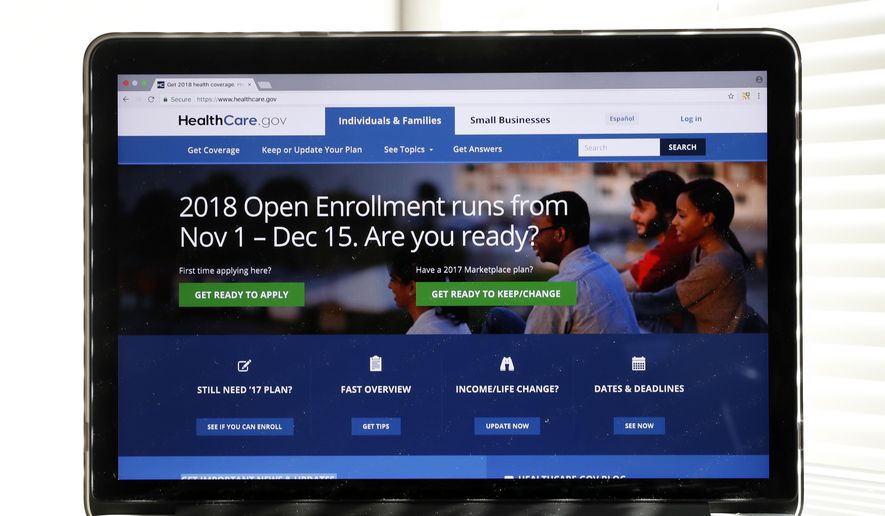Obamacare’s individual mandate requiring all Americans to have health coverage is about to disappear next year. But New Jersey is poised to slap it back on its residents.
The state legislature has delivered a bill to Gov. Phil Murphy that would reimpose Obamacare’s tax penalty on anyone who forgoes insurance, as well as use a mix of federal and state money to subsidize high-risk customers, hoping to knock down premiums for everyone else.
The moves put New Jersey at the forefront of a blue-state push to Trump-proof their health markets before the 2019 enrollment season, after President Trump and Congressional Republicans repealed the individual mandate as part of last year’s tax-cut bill.
Liberal states like California and Rhode Island are studying whether it’s worth reimposing the most unpopular part of Obamacare. Maryland has approved a reinsurance program to cover high-cost customers.
But New Jersey, in embracing the individual mandate, is racing out in front, and will join Massachusetts as the only states to wield such a prod.
The key in New Jersey was the election last year of Mr. Murphy, a Democrat, who replaced GOP Gov. Chris Christie.
“I think that the legislature, combined with the governor, were all of like mind. When you have that kind of scenario, it allows legislation to move,” Assemblyman John McKeon, a Democrat who led the effort and said Mr. Murphy intends to sign the bills.
Analysts said the individual mandate was the heart of Obamacare — a requirement that everyone have insurance, or pay a tax penalty. It was supposed to convince younger, healthier customers to get into the market, where their premiums would help cover the costs of older and sicker customers.
The Supreme Court upheld the mandate in 2012 as a valid use of Congress’s taxing power. But it was still the most unpopular part of the law, and once Mr. Trump won the election the GOP went to work to eliminate it.
Now, New Jersey is borrowing from Obamacare, envisioning the same penalties that were in the federal law: either $695 or 2.5 percent of income above the filing threshold, whichever is greater.
Red states are heading in the opposite direction, though, searching for ways around President Obama’s legacy program, such as allowing healthy people to sign up for cheaper options even if it means they aren’t part of the Obamacare exchange markets.
Idaho’s push to offer noncompliant plans off the exchanges didn’t pass legal muster with the Trump administration, although federal officials applauded the spirit of the effort. They urged Idaho to see if Mr. Trump’s plan for short-term plans offers a way forward.
Iowa Gov. Kim Reynolds, meanwhile, recently signed a measure that allows its state farm bureau to offer coverage that doesn’t comply with Obamacare’s reforms. It appears to be a legal path, since the nonprofit health benefit is not defined as actual insurance.
“We are quickly headed to a red state/blue state approach to the Obamacare individual health insurance markets,” said Robert Laszewski, a health policy consultant in Virginia. “The most Democratic states are looking to shore up and defend Obamacare from Trump’s ‘sabotage.’ The Republican states are more often looking to provide alternatives for individual market consumers that will undermine the Obamacare risk pool.”
The result is likely to be an even more fractured health market, with insurers preparing major price increases for 2019, figuring costlier, sicker people will likely stay in the markets.
They’re also skittish about Mr. Trump’s effort to let healthy people sign up for “short-term” plans that don’t comport with the 2010 law, saying it will take still more healthy customers out of the market.
Congress tried to reverse the potential damage with a “stabilization” bill that would have restored “cost-sharing” reimbursements to insurers and posted billions in federal reinsurance money to tamp down premiums.
Republicans tried to attach the compromise to a must-pass spending bill last month, but the effort fell apart, doomed by abortion politics and campaign-season rancor.
Back in New Jersey, Mr. McKeon said lawmakers were alarmed by a recent study, commissioned by the California exchange, that said the Garden State faced “catastrophic” premium increases in the absence of federal action.
“Not doing anything,” he said, “wasn’t an option.”
• Tom Howell Jr. can be reached at thowell@washingtontimes.com.




Please read our comment policy before commenting.